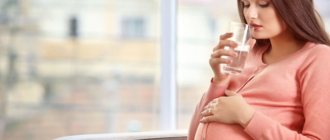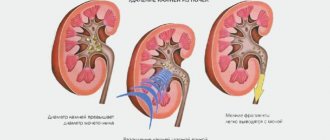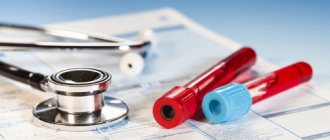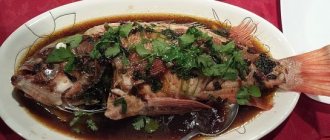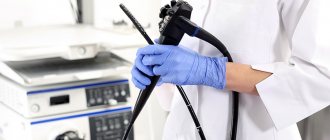Is diet before colonoscopy important? Dietary preparation for colonoscopy
During the examination, the doctor assesses the condition of the intestinal walls. It checks for any anomalies:
- bleeding;
- diverticula;
- most importantly, tumors.
In a situation where food remains remain in the intestines, the doctor will not be able to assess the condition of the organ. Food fragments may appear as abnormalities or hide them. For this reason, it is so important to prepare for the test through diet.
Dietary restrictions in preparation for colonoscopy vary widely from institution to institution. Some doctors recommend more strict dietary restrictions, others less. Therefore, changes to the diet should be made in accordance with the recommendations of the clinic where the examination will be carried out.
It is also necessary to consult a gastroenterologist about the medications used. Some of them, for example, iron supplements, will have to be discontinued after consultation with a specialist. Others should be taken in reduced doses - this applies, for example, to insulin, the dosage of which depends on the diet and the amount of food consumed.
Diet before colonoscopy - traditional recommendations
traditional recommendations
A week before the examination, an easily digestible diet is recommended. Difficult to digest foods, fatty and fried foods that linger in the digestive tract for a long time should be avoided. A highly digestible diet also involves reducing your fiber intake, primarily whole grains and fibrous grain products. You should also avoid all types of seeds, including those found in fruits, and grains (strawberries, raspberries, flax seeds, etc.).
- 3 days before the examination, it is recommended to further reduce fiber intake and exclude raw vegetables and fruits from the menu.
- 2 days before the examination, a residue-free diet is followed, which means that fiber is practically excluded.
- You can eat a low fiber breakfast 1 day before the test, but subsequent meals should be based on a liquid diet. You should also start taking cleansing medications prescribed by your doctor. Since then, you should abstain from food, it is advisable to drink neutral liquids (water, weak tea).
On the day of the examination, 4 hours before the scheduled procedure, you should no longer drink liquids.
Dietary recommendations
To avoid complications, follow basic nutritional recommendations for at least a week after FCS.
- Cook food by steaming, in the oven, in a slow cooker, or simply boiling it. Fried foods are “dangerous” for the intestines, especially those with a thick crust. When roasting meat, be careful not to overcook it, otherwise it will become too tough and difficult to digest.
- You need to eat more often (5-7 times a day), but in small amounts. Ideally, one serving should fit in a glass. This will prevent the formation of a large volume of stool and stretching of the colon wall.
- The optimal food temperature is 15-60 °C. Colder and hotter foods will irritate the mucous membrane of the digestive tract.
- It is also better to avoid spicy dishes, marinades, smoked meats, and spicy spices due to possible irritating effects.
- Try to drink more - about 2 liters of fluid per day. This will prevent constipation and facilitate the movement of food masses through the gastrointestinal tract.
- During the first 2-3 days, give preference to dishes in the form of purees, minced meat, porridges and soups. Move on to more solid foods towards the end of the week.
If the doctor has not given any other recommendations, then a week after the examination you can return to your usual diet, but this must be done gradually, gradually increasing the daily amount of food and adding previously prohibited foods.
Sometimes, to restore normal microflora, doctors recommend taking probiotics: Bifiform, Linex, Bion 3.
Important! If, despite following all the rules, you have a stomach ache, a fever, or bloody discharge from the anus, you should immediately seek medical help.
Diet before colonoscopy - modern recommendations
According to recent studies, it is not necessary to strictly follow a diet before a colonoscopy. There is no scientific evidence to support the need to eliminate fiber foods earlier than the day before testing.
Dietary restrictions should only be introduced the day before. Meat, vegetables and cereals should be excluded. Some endoscopy units restrict fiber only the day before a colonoscopy.
According to recent research, there is also no need to apply calorie restrictions in the days leading up to the test. Based on many studies, it can be concluded that any restrictions applied earlier than the day before the examination may be unnecessary, since they are not associated with better preparation of patients for the procedure.
Although there are differences between the old and new recommendations, it is important to consult with your doctor at a clinic rather than making dietary changes on your own.
What can you eat and drink before the examination?
What you can eat and drink before the examination
It is advisable to follow a low-fiber diet. The menu should be based on easily digestible and fiber-free foods and dishes. Some recommendations also include removing dairy products from the menu, including fermented milk products.
During the week, you can drink almost everything: water, coffee, tea, but you should avoid juices with pulp, smoothies and other dishes containing plant fiber. The day before the examination you should also give up coffee.
Dishes should be boiled or stewed, and fried and baked foods should be excluded. Vegetables and fruits containing seeds are excluded from the diet, the same applies to nuts and seeds.
Vegetables should be cooked (for example, carrots or beets); you can eat fresh lettuce and peeled tomatoes.
Allowed are bread made from wholemeal flour, dark and large grains - barley, buckwheat, bulgur).
You can eat bananas as a fruit. At the last stage, with a liquid diet, you can have liquid jelly and soups without pureed vegetables.
Recommended and prohibited products
The main thing in the diet before an intestinal colonoscopy is the menu, from which it is necessary to exclude waste products. This includes
- all legumes such as lentils, beans, peas, and soy products;
- fatty meat, pickles and smoked meats;
- coffee, strong tea, chocolate and nuts;
- fresh milk, kvass, carbonated and alcoholic drinks;
- various snacks, chips and fast food;
- rye bread and some cereals (barley, millet);
- vegetables and fruits such as: apricots, citrus fruits, grapes, bananas, peaches, dates, dried fruits;
- berries: raspberries, gooseberries;
- greens: spinach and sorrel.
At the same time, it is necessary to include such products in the diet
- lean fish;
- lean boiled meat (veal, chicken breast, rabbit), as well as broths;
- porridge: buckwheat, brown rice, as well as wholemeal bread or unsweetened and savory cookies
- jelly, compotes, juices;
- low-fat kefir, cottage cheese, unsweetened yogurt.
It is advisable to consume all foods raw and not mix them, if possible. It is better to drink green or hibiscus tea on this day; replace sugar with a teaspoon of honey. For first courses, it is preferable to opt for vegetable soups, and eat fish and meat boiled or steamed.
What to eat after a colonoscopy?
In the first hours after the examination, discomfort may occur due to irritation of the intestines and its filling with gas for examination. For this reason, it is better to wait 2-3 hours with the first meal after the test.
It is also recommended in the first few days to have an easily digestible diet so as not to overload the intestines. It is not recommended to eat foods that are difficult to digest and high in dietary fiber. It is also a good practice to eat more often, but in smaller portions.
Sample menu after colonoscopy:
- Breakfast: semolina porridge with rice milk, cinnamon and applesauce.
- 2nd breakfast: sandwiches made of white wheat bread with butter and honey.
- Lunch: chicken meatballs in a light sauce with potatoes and boiled carrots.
- Afternoon snack: marshmallows – 1 pc.
- Dinner: steamed eggs with lightly buttered wheat bread.
If you find an error, please select a piece of text and press Ctrl+Enter
Nutrition before colonoscopy
Dietary recommendations before the study correspond to the general treatment table No. 5 (According to Pevzner).
You should start following a diet 5-7 days before the procedure; for shorter periods between the appointment and the date of the examination, 3-4 days will be enough. Changing your diet helps ease bowel movements and prevent the development of flatulence. Medical products (drugs, medicines, vitamins, dietary supplements) are mentioned for informational purposes only. We strongly do not recommend using them without a doctor's prescription. We recommend reading: “Why can’t you take medications without a doctor’s prescription?”
Basic principles
The recommended diet before a colonoscopy is completely balanced, physiological and beneficial for the body. Its principles can be followed on ordinary days.
For 4-7 days before the study, the following recommendations should be followed:
- Frequency of meals. During the day there should be 3 main meals, 2-3 snacks if desired. It is important to avoid long periods of time between meals, not to eat on the go or dry.
- Balance. The menu should be varied, and the foods consumed should contain sufficient amounts of minerals, vitamins and other nutrients (fats, amino acids, proteins, carbohydrates).
- Calorie content. It is strictly forbidden to reduce the number of daily calories below the physiological norm, which depends on the age, gender, weight and activity level of the person.
- Exclusion of “harmful” products. For a while, you need to remove fast food, processed foods, fatty, spicy foods, canned food, and spices from your diet. It is not recommended to drink alcohol or carbonated sweet water.
- Water mode. You should drink at least 1.5 liters of clean water per day.
The procedure is carried out on an empty stomach, so the last meal should be 12 hours before and consist of light foods (cottage cheese, porridge, dairy products).
Products
| Recommended Products | Excluded Products |
|
|
Sample menu for the week
| Days | Breakfast | Dinner | Dinner |
| Day 1 | Steamed omelette, multigrain bread, cocoa with dry cookies. | Chicken breast broth, boiled rice, bread, vegetable puree with boiled chicken, tea. | Bulgur with beef cutlets, cottage cheese casserole, compote. |
| Day 2 | Mashed cottage cheese with peach and natural yogurt, tea with sugar. | Vegetable soup with beef broth, fruit sorbet, tea. | Natural yogurt with berries, biscuits, tea with sugar or honey. |
| Day 3 | Milk rice porridge, banana and compote. | Mashed potatoes with pollock and steamed vegetables, marshmallows, cocoa, bread. | Buckwheat porridge with milk, berry soufflé, dried fruit compote. |
| Day 4 | Steam omelet, bran bread with cream cheese, tea, marshmallows. | Chicken broth with buckwheat and vegetables, chicken baked with white rice, compote. | Mashed cottage cheese with banana, a glass of kefir. |
| Day 5 | Cottage cheese casserole with berries, cocoa. | Lenten borscht, steamed meatballs, boiled potatoes with butter, tea. | Boiled lean fish with white rice, cookies, tea, bran bread. |
| Day 6 | Buckwheat porridge with milk, tea, biscuits. | Vegetable puree, milk hake, bread, cocoa. | Turkey fillet with potatoes, tea, marshmallows. |
| Day 7 | Oatmeal with low-fat milk, hibiscus tea, fruit soufflé. | Chicken broth, buckwheat porridge with chicken fillet, dry cookies, pomegranate juice. | Yogurt with fruit (apricot or banana), dry sponge cake, tea. |


